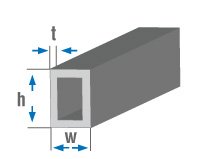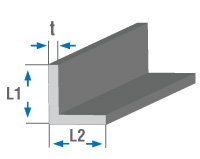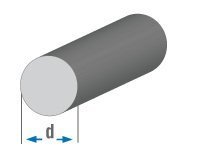Pipe Weight Calculation
How to Calculate Pipe Weight?
To calculate pipe weight, you can achieve an accurate result by using the dimensions, material density, and length data. The Yakup Yılmaz Pipe weight calculator helps you perform your calculations quickly and practically.
1. Define the Dimensions:
- Outer Diameter (D): Measure the outer diameter of the pipe.
- Inner Diameter (d): Measure the inner diameter of the pipe.
- Length (L): Determine the length of the pipe.
2. Determine the Material Density:
Identify the density of the material being used. For example:
- Steel: 7,850 kg/m³
- Aluminum: 2,700 kg/m³
- Copper: 8,960 kg/m³
3. Use the Pipe Weight Calculation Formula:
You can use the following formula to calculate pipe weight:
Weight (kg) = (π / 4) × (D² - d²) × L × Density
Here, π (pi) is approximately 3.14159.
4. Example Calculation:
Example:
- Outer Diameter (D): 0.1 meter
- Inner Diameter (d): 0.08 meter
- Length (L): 1 meter
- Density: 7,850 kg/m³
Weight = (π / 4) × (0.1² - 0.08²) × 1 × 7,850
Weight = (3.14159 / 4) × (0.01 - 0.0064) × 7,850
Weight ≈ 15.4 kg
5. Practical Tips
- Reference Table: You can create a ready-made table that includes standard densities and dimensions or use the Industrial Pipe Strength Values pages provided on our website.
- Verify Your Measurements: Make sure your measurements are accurate before calculating.
- Material Types: Remember to use different density values for materials other than steel.
6. Important for Accurate Planning
Accurately calculating pipe weight enables you to select the right materials for your projects. Incorrect calculations can lead to increased costs or project delays. You can avoid such issues by utilizing our detailed calculation tools.


















